Category: Recommended Reading
Lucille Clifton’s ‘Generations: A Memoir’
Clifford Thompson at Commonweal:
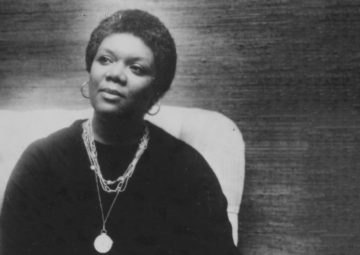 A passage in Walt Whitman’s seminal 1855 work, Leaves of Grass, reads, “And do not call the tortoise unworthy because she is not / something else, / And the mocking bird in the swamp never studied the / gamut, yet trills pretty well to me.” Another reads, “For me the man that is proud and feels how it stings to be / slighted, / For me the sweetheart and the old maid…for me / mothers and the mothers of mothers, / For me lips that have smiled, eyes that have shed tears, / For me children and the begetters of children.”
A passage in Walt Whitman’s seminal 1855 work, Leaves of Grass, reads, “And do not call the tortoise unworthy because she is not / something else, / And the mocking bird in the swamp never studied the / gamut, yet trills pretty well to me.” Another reads, “For me the man that is proud and feels how it stings to be / slighted, / For me the sweetheart and the old maid…for me / mothers and the mothers of mothers, / For me lips that have smiled, eyes that have shed tears, / For me children and the begetters of children.”
Lines from “Song of Myself,” the book’s longest poem, help separate the chapters of the African-American poet Lucille Clifton’s Generations: A Memoir. Perhaps, in part, that is because of three qualities of Whitman’s work, evident in the lines above: celebration of life, acknowledgment of its difficulties, and recognition of beauty wherever it is found.
more here.
Yanis Varoufakis: How the Euro Divided Europe
Yanis Varoufakis in Project Syndicate:
 The euro’s primary purpose was to facilitate integration by eliminating the cost of currency conversions and, more importantly, the risk of destabilizing devaluations. Europeans were promised that it would encourage cross-border trade. Living standards would converge. The business cycle would be dampened. It would bring greater price stability. And intra-eurozone investment would yield faster productivity growth overall and convergent growth between member countries. In short, the euro would underpin the benign Germanization of Europe.
The euro’s primary purpose was to facilitate integration by eliminating the cost of currency conversions and, more importantly, the risk of destabilizing devaluations. Europeans were promised that it would encourage cross-border trade. Living standards would converge. The business cycle would be dampened. It would bring greater price stability. And intra-eurozone investment would yield faster productivity growth overall and convergent growth between member countries. In short, the euro would underpin the benign Germanization of Europe.
Twenty years later, none of these promises has been fulfilled. Since the eurozone’s formation, intra-eurozone trade grew by 10%, substantially lower than the 30% increase in global trade and, more significantly, the 63% increase in trade between Germany and a trio of European Union countries that did not adopt the euro: Poland, Hungary, and the Czech Republic.
More here.
Marxism and Criticism: Michael Fried On John Berger
Michael Fried at nonsite:
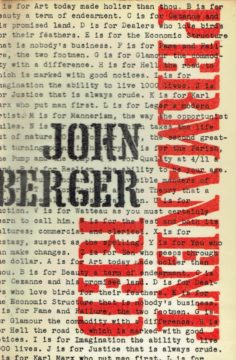 What all this comes down to, then, is that Berger accepts a priori a militant and often staggeringly vulgarized brand of Marxism from which all his judgments about art derive, in language anyway. (Since we are never allowed to view the actual procedure by which Berger judges that one painting is “subjective” or “decadent” and another not—this would involve defining Marxist terminology in visual terms—we can say no more than this.) Furthermore, when Berger finds himself in a position that, even to the layman, is pretty obviously untenable, he is prepared to deny its apparent meaning and then reintroduce the untenable notion through the loaded use of supposedly neutral or descriptive words—such as “improvement” in the above example. My fundamental objection is not that Berger begins from a position of accepting Marxist theory. In the world we live in more and more critics of art may be expected to start from similar political premises. But what is imperative is that the critic define his terms; that he show with sensitivity and logical rigor the usefulness and, if possible, the necessity of employing Marxist concepts and terminology. Unless he can do this his judgments will reveal nothing more than the strength of his bias and the slovenliness of his mind: they can say nothing about the works of art in question.
What all this comes down to, then, is that Berger accepts a priori a militant and often staggeringly vulgarized brand of Marxism from which all his judgments about art derive, in language anyway. (Since we are never allowed to view the actual procedure by which Berger judges that one painting is “subjective” or “decadent” and another not—this would involve defining Marxist terminology in visual terms—we can say no more than this.) Furthermore, when Berger finds himself in a position that, even to the layman, is pretty obviously untenable, he is prepared to deny its apparent meaning and then reintroduce the untenable notion through the loaded use of supposedly neutral or descriptive words—such as “improvement” in the above example. My fundamental objection is not that Berger begins from a position of accepting Marxist theory. In the world we live in more and more critics of art may be expected to start from similar political premises. But what is imperative is that the critic define his terms; that he show with sensitivity and logical rigor the usefulness and, if possible, the necessity of employing Marxist concepts and terminology. Unless he can do this his judgments will reveal nothing more than the strength of his bias and the slovenliness of his mind: they can say nothing about the works of art in question.
more here.
Malala Yousafzai reflects on the defining moments of her life
Tuesday Poem
A Small Bang
Syllables pour into a hundred-word universe shocked as the first hydrogen atoms. Each has a music. They circle, join suddenly — word sounds — “Crew went the curlew as it flew in a curlicue.” They rhyme. “Ache did” pairs with “naked.” They gather into galaxies, “He did not know who he was until she taught him desire, then he did not know who he was,” until here at the end of the dictionary of the Milky Way we dangle from a participle, aware of dark matter, what has not as yet been seen, so not as yet said.
I wake from yesterday’s mild exercise
this body’s not immortal though sometimes
I’m hard to convince .. if I came back what would I be?
something small, quick, and sly? A night creature,
fox maybe or ..water rat ..nose in the air ..feet in water?
……. it’s good to live in two worlds at once
……. what lives between fire and earth?
or will we have no bodies then? just location?
like a point in geometry? I would miss this aging
aching frame .. the heaviness that anchors spirit
here in spring like the pull of earth that keeps
the moon from swinging away
by Nils Peterson
from 1001 Words – Thinking of Scheherazade
A Passage to Parenthood
Akhil Sharma in The New Yorker:
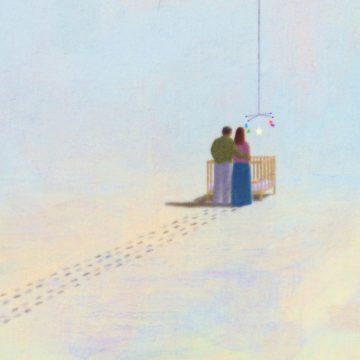 Not long after we began dating, my now wife, Christine, and I started making up stories about the child we might have.
Not long after we began dating, my now wife, Christine, and I started making up stories about the child we might have.
We named the child—or, in the stories we told about him, he named himself—Suzuki Noguchi. Among the things we liked about him was that he was cheerfully indifferent to us. He did not wish to be either Irish (like Christine) or Indian (like me). Suzuki was eight, and he chose this name because he was into Japanese high fashion. When we told him that he couldn’t just go around claiming to be Japanese, Suzuki said that he was a child of God and who were we to say that God was not Japanese. In addition to being a dandy, Suzuki was a criminal. He dealt in yellowcake uranium and trafficked in endangered animals. Sometimes we asked him how his day at school had gone and he would warn, “Do you really want to be an accessory after the fact?” We imagined him banging on our bedroom door when we were having sex and shouting, “Stop! You can’t get any child better than me.”
My wife was forty-eight and I was forty-seven, and we started inventing these stories as a form of play. It also soothed some hurt part of us.
More here.
Love Triangle Challenges Reign of Japan’s Monkey Queen
Annie Roth in The New York Times:
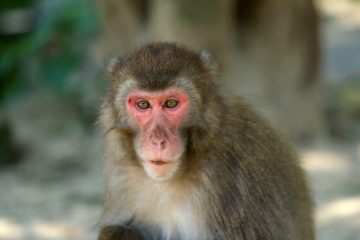 Smashing the patriarchy in the human world has been easier said than done. But last year, a 9-year-old female Japanese macaque in a reserve in southern Japan showed humans how it’s done by violently overthrowing the alpha male of her troop to become its first female leader in the reserve’s 70-year history. The macaque, named Yakei, presides over a troop of 677 monkeys in Takasakiyama Natural Zoological Garden, which was established as a reserve for monkeys in 1952. There are two troops on the island reserve, and they spend most of their time roaming the forested mountain at its center. They also make daily visits to a park at the base of the mountain, where the staff provides food. Since the reserve opened, its staff has kept tabs on the romantic and political struggles of its simian residents.
Smashing the patriarchy in the human world has been easier said than done. But last year, a 9-year-old female Japanese macaque in a reserve in southern Japan showed humans how it’s done by violently overthrowing the alpha male of her troop to become its first female leader in the reserve’s 70-year history. The macaque, named Yakei, presides over a troop of 677 monkeys in Takasakiyama Natural Zoological Garden, which was established as a reserve for monkeys in 1952. There are two troops on the island reserve, and they spend most of their time roaming the forested mountain at its center. They also make daily visits to a park at the base of the mountain, where the staff provides food. Since the reserve opened, its staff has kept tabs on the romantic and political struggles of its simian residents.
Yakei’s ascent to alpha status surprised both scientists and reserve workers, who are now closely observing Yakei’s reign to see how long she can maintain her supremacy. And with breeding season sending Yakei into the middle of something like a messy love triangle, some experts wonder if she may be vulnerable to a usurper.
More here.
Sunday, January 23, 2022
Here for the Ratio
Justin E. H. Smith in his Substack newsletter, The Hinternet:
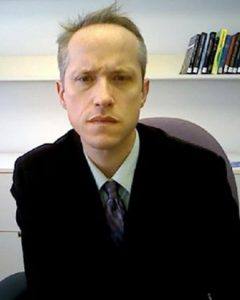 One of the primary sticking points that prevents me from being a Marxist, even as I think Marxist analysis is the most illuminating framework we have for making sense of history and economics, is that I could never abide the idea of false consciousness. Another way of putting this is that Marxism is pretty adequate for the study of history and economics, utterly inadequate for anthropology, which I tend to care about most of all, and for which I think an anarchist lens is most revealing. Do you really want to tell a Nuer herdsman that the cattle-centric cosmology he uses to understand his place in the world is just an artefact of ideology, flowing from the relations of labor that prevail in his society and of which he remains ignorant? Wouldn’t it perhaps be more interesting to see what happens when you take his word for it, about what a cow is, for example, and how cows relate to human beings? And if you are willing to approach a Nuer herdsman in this way, why not also a concitoyen of yours who thinks Nascar is the ultimate thrill, or a lower-bourgeois French person who thinks no holiday meal is complete without pigs’ feet in aspic and who simply adores Johann Strauss’s “Blue Danube”?
One of the primary sticking points that prevents me from being a Marxist, even as I think Marxist analysis is the most illuminating framework we have for making sense of history and economics, is that I could never abide the idea of false consciousness. Another way of putting this is that Marxism is pretty adequate for the study of history and economics, utterly inadequate for anthropology, which I tend to care about most of all, and for which I think an anarchist lens is most revealing. Do you really want to tell a Nuer herdsman that the cattle-centric cosmology he uses to understand his place in the world is just an artefact of ideology, flowing from the relations of labor that prevail in his society and of which he remains ignorant? Wouldn’t it perhaps be more interesting to see what happens when you take his word for it, about what a cow is, for example, and how cows relate to human beings? And if you are willing to approach a Nuer herdsman in this way, why not also a concitoyen of yours who thinks Nascar is the ultimate thrill, or a lower-bourgeois French person who thinks no holiday meal is complete without pigs’ feet in aspic and who simply adores Johann Strauss’s “Blue Danube”?
More here.
Reinventing the Electric Grid Is Crucial for the Climate Crisis
Charles F. Kutscher & Jeffrey Logan in Undark:
 Hailed as the greatest invention of the 20th century, our now-aging grid was based on fundamental concepts that made sense at the time it was developed. The original foundation was a combination of base load coal plants that operated 24 hours a day and large-scale hydropower.
Hailed as the greatest invention of the 20th century, our now-aging grid was based on fundamental concepts that made sense at the time it was developed. The original foundation was a combination of base load coal plants that operated 24 hours a day and large-scale hydropower.
Beginning in 1958, these were augmented by nuclear power plants, which have operated nearly continuously to pay off their large capital investments. Unlike coal and nuclear, solar and wind are variable; they provide power only when the sun and wind are available.
Converting to a 21st-century grid that is increasingly based on variable resources requires a completely new way of thinking. New sources of flexibility — the ability to keep supply and demand in balance over all time scales — are essential to enable this transition.
There are basically three ways to accommodate the variability of wind and solar energy: use storage, deploy generation in a coordinated fashion across a wide area of the country along with more transmission, and manage electricity demand to better match the supply.
More here.
A Democratic Vision for Antitrust
Sanjukta Paul in Dissent:
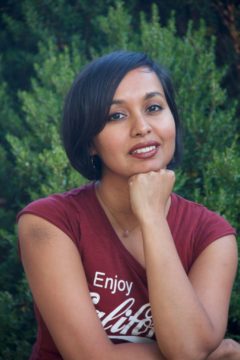 Last spring, prominent Big Tech critic Lina Khan became the new chair of the Federal Trade Commission (FTC)—an appointment widely seen as a coup for progressive reform. In her confirmation hearing, she characterized the agency’s overarching goal in terms of “fair competition.” This choice of emphasis is significant for understanding the antitrust reform project of which Khan is a leader. At its core, the project is a policy paradigm aimed at creating fair markets—markets characterized by socially beneficial competition, fair prices, and decent wages.
Last spring, prominent Big Tech critic Lina Khan became the new chair of the Federal Trade Commission (FTC)—an appointment widely seen as a coup for progressive reform. In her confirmation hearing, she characterized the agency’s overarching goal in terms of “fair competition.” This choice of emphasis is significant for understanding the antitrust reform project of which Khan is a leader. At its core, the project is a policy paradigm aimed at creating fair markets—markets characterized by socially beneficial competition, fair prices, and decent wages.
While both proponents and detractors of this reform project sometimes conflate competition policy with the goal of maximizing economic competition for its own sake, in reality, competition law has always assessed economic rivalry and coordination in relation to broader social ends. For a long time, that assessment has been obscured—not to mention insufficiently tethered to the original goals of federal antitrust law. The reform project aims to reorient the use of antitrust in expressly egalitarian and democratic directions.
More here.
Where are memories stored in the brain?
Don Arnold in The Conversation:
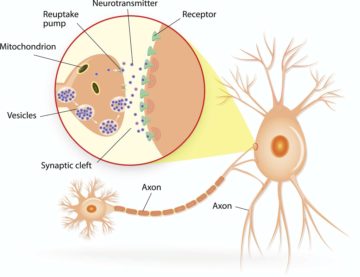 Previously, researchers focused on recording the electrical signals produced by neurons. While these studies have confirmed that neurons change their response to particular stimuli after a memory is formed, they couldn’t pinpoint what drives those changes.
Previously, researchers focused on recording the electrical signals produced by neurons. While these studies have confirmed that neurons change their response to particular stimuli after a memory is formed, they couldn’t pinpoint what drives those changes.
To study how the brain physically changes when it forms a new memory, we created 3D maps of the synapses of zebrafish before and after memory formation. We chose zebrafish as our test subjects because they are large enough to have brains that function like those of people, but small and transparent enough to offer a window into the living brain.
To induce a new memory in the fish, we used a type of learning process called classical conditioning.
More here.
What an Ending: Considering E.M. Forster’s Maurice at four moments in time
Dylan Byron in Lapham’s Quarterly:
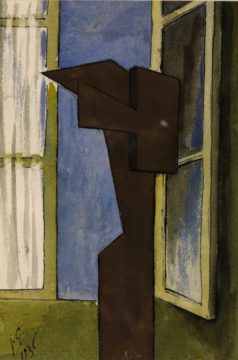 Forster began writing Maurice in 1913, when the British Empire governed nearly a quarter of the earth’s population and the question of nostalgia was beside the point. Forster was thirty-four, eighteen years had passed since Oscar Wilde’s conviction for “gross indecency,” and it would be another fifty-four years before “homosexual acts” were decriminalized in the United Kingdom. Completed in 1914 and subsequently revised several times, Maurice was published only after Forster’s death in 1970, a year after Stonewall; understandably fearing homophobic reprisal, he had refused to publish the novel in his lifetime, instead leaving the manuscript to his friend Christopher Isherwood, who subsequently oversaw its publication in 1971. The barely canonical novel circles around the story of Clive Durham and Maurice Hall, Cambridge undergraduates who fall in love reading Plato’s Symposium and listening to Tchaikovsky’s Pathétique Symphony. In a “Terminal Note” appended in 1960, Forster reveals that Maurice “was the direct result of a visit to Edward Carpenter,” the Cambridge-educated, sandal-wearing gardener, poet, and utopian socialist who lived with his much younger, rather more working-class boyfriend, George Merrill, in Millthorpe, a village in Derbyshire. Forster praises the intellectual example of Carpenter but credits Merrill’s ambient sensuality with instigating the novel:
Forster began writing Maurice in 1913, when the British Empire governed nearly a quarter of the earth’s population and the question of nostalgia was beside the point. Forster was thirty-four, eighteen years had passed since Oscar Wilde’s conviction for “gross indecency,” and it would be another fifty-four years before “homosexual acts” were decriminalized in the United Kingdom. Completed in 1914 and subsequently revised several times, Maurice was published only after Forster’s death in 1970, a year after Stonewall; understandably fearing homophobic reprisal, he had refused to publish the novel in his lifetime, instead leaving the manuscript to his friend Christopher Isherwood, who subsequently oversaw its publication in 1971. The barely canonical novel circles around the story of Clive Durham and Maurice Hall, Cambridge undergraduates who fall in love reading Plato’s Symposium and listening to Tchaikovsky’s Pathétique Symphony. In a “Terminal Note” appended in 1960, Forster reveals that Maurice “was the direct result of a visit to Edward Carpenter,” the Cambridge-educated, sandal-wearing gardener, poet, and utopian socialist who lived with his much younger, rather more working-class boyfriend, George Merrill, in Millthorpe, a village in Derbyshire. Forster praises the intellectual example of Carpenter but credits Merrill’s ambient sensuality with instigating the novel:
More here.
Concentrate!
Jonathan Rowson in aeon:
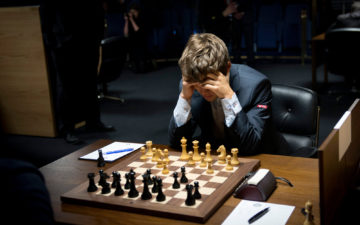 Arriving at the chess board is like entering an eagerly anticipated party. All my old friends are there: the royal couple, their associates, the reassuringly straight lines of noble infantry. I adjust them, ensuring that they are optimally located in the centre of their starting squares, an anxious fidgeting and tactile caress. I know these pieces, and care about them. They are my responsibility. And I’m grateful to my opponent for obliging me to treat them well on pain of death.
Arriving at the chess board is like entering an eagerly anticipated party. All my old friends are there: the royal couple, their associates, the reassuringly straight lines of noble infantry. I adjust them, ensuring that they are optimally located in the centre of their starting squares, an anxious fidgeting and tactile caress. I know these pieces, and care about them. They are my responsibility. And I’m grateful to my opponent for obliging me to treat them well on pain of death.
In many ways, I owe chess everything. Since the age of five, the game has been a source of friendship, refuge and growth, and I have been a grandmaster for 20 years. The lifelong title is the highest awarded to chess players, and it is based on achieving three qualifying norms in international events that are often peak performances, combined with an international rating reflecting a consistently high level of play – all validated by FIDE, the world chess federation. There are about 1,500 grandmasters in the world. At my peak, I was just outside the world top 100, and I feel some gentle regret at not climbing even higher, but I knew there were limits. Even in the absence of a plan A for my life, chess always felt like plan B, mostly because I couldn’t imagine surrendering myself to competitive ambition. I have not trained or played with serious professional intent for more than a decade, and while my mind remains charmed by the game, my soul feels free of it.
In recent years, I have worked in academic and public policy contexts, attempting to integrate our understanding of complex societal challenges with our inner lives, while also looking after my two sons. I miss many things about not being an active player. I miss the feeling of strength, power and dignity that comes with making good decisions under pressure. I miss the clarity of purpose experienced at each moment of each game, the lucky escapes from defeat, and the thrill of the chase towards victory. But, most of all, I miss the experience of concentration.
More here.
Sunday Poem
You Know it Now
Clocks, it fears them.
Dials, hands,
It cannot face them.
The sound of ticking
Drives it mad.
Nightmare and daymare.
Seconds and hours,
It cannot stand them.
People who say
Please can you tell me the—
It runs out of sight,
It can’t abide them.
You know it now; and how
The answer isn’t time.
Naming
Like a blur of rain on the real world.
And no one denies the great utility
For comptrollers of imperial households,
For quartermaster-sergeants,
For grocer’s assistants,
For museum curators,
For taxonomists and schoolboys,
Pundits and critics.
And if the name becomes the thing,
The rain it raineth every day
And anyhow: could we bear it?
Could we bear the light of the world
Of things without names?
by John Fowles
from Poems, John Fowles
The Ecco Press, 1973
Terry Teachout (1956 – 2022) critic
Maria Ewing (1950 – 2022) soprano
Ronnie Spector (1943 – 2022) singer
Saturday, January 22, 2022
Controlled Prices
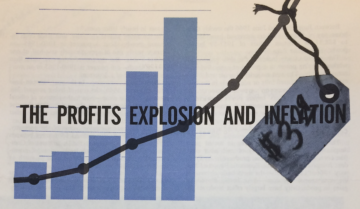 Andrew Yamakawa Elrod in Phenomenal World (image: Reprint from the September 1966 issue of AFL-CIO American Federationist, Box 38, Folder 4, William Page Keeton Papers, Special Collections, Tarlton Law Library, The University of Texas at Austin):
Andrew Yamakawa Elrod in Phenomenal World (image: Reprint from the September 1966 issue of AFL-CIO American Federationist, Box 38, Folder 4, William Page Keeton Papers, Special Collections, Tarlton Law Library, The University of Texas at Austin):
In the decades after the Civil War, Andrew Carnegie captured the American steel industry by pushing down prices. So effective was the Scottish-born telegraph operator at reducing costs, breaking cartels, and driving competition into bankruptcy during the downturns of the 1880s and 1890s, that J.P. Morgan bought out the 66-year-old Carnegie to protect the profitability of his holdings and stabilize the nation’s industrial life. When Morgan incorporated U.S. Steel in 1901, the unprecedented combine controlled two-thirds of the nation’s steelmaking capacity. For the next six decades, the company set the price of steel in the American market, anchoring industry prices by cutting last in recessions and raising last in expansions. Under this “price umbrella,” the other dozen companies owning steel factories in the US remained profitable and expanded healthily. Industry-wide, ingot capacity expanded from 21.5 million to 71.6 million tons between the firm’s creation and the eve of World War II.
Ever since Alfred Marshall first popularized a rough graph of the crossing schedules of supply and demand in 1890, a strain of Anglo-American thinking has fixated on the disruptions caused by the ancient practice of controlling prices. Impose a ceiling too low, theory teaches, and the quantity demanded will outpace the quantity supplied; a floor too high, and producers will build up surpluses above what consumers are willing to absorb at current prices. Because wants are always changing, any ceiling or floor will eventually produce such “distortions.” Limit any price and the whole society may begin to convulse.
More here.
The Road to Terfdom
 Katie J. M. Baker in Lux:
Katie J. M. Baker in Lux:
Nothing caused me greater culture shock when I moved from New York to London than the British media’s hysterical obsession with trans women.
I’d turn on the Today Programme, the BBC’s flagship morning news show, as I made my coffee and hear debates over whether trans women were actually just men who thought they were women. On the weekends, I’d read headlines in both the liberal Guardian and the conservative Daily Mail questioning whether trans women have the right to identify as women. Then there were the protests: women diving into men’s bathing pools wearing fake beards and “mankinis,” yelling “dykes not dicks” at Pride parades, wielding graphic post-surgery posters at LGBT youth conferences. I was confused to find that the protesters were often middle-aged, middle-class women, some of whom wore mysterious badges proclaiming they had been “Radicalised by Mumsnet.”
Of course, I’d witnessed virulent transphobia in the U.S. But there, it takes a different public form — its most vocal proponents are Republicans who want to ban bathroom access to trans people, or contrarians who might call themselves liberal but derive their credibility from criticizing oppressed groups seeking equality. TERFS, short for Trans Exclusionary Radical Feminists, don’t get as much airplay. TERFs believe that women are defined by their biological differences from men. They want liberation from gender stereotypes, but don’t think it’s possible to be freed from biological sex, and argue the latter goal is not just naive but hurts efforts to combat sexual violence and discrimination. That was exactly the type of messaging I was regularly hearing in the U.K. media, which more frequently than not cast women’s rights and trans rights as diametrically opposed.
More here.
